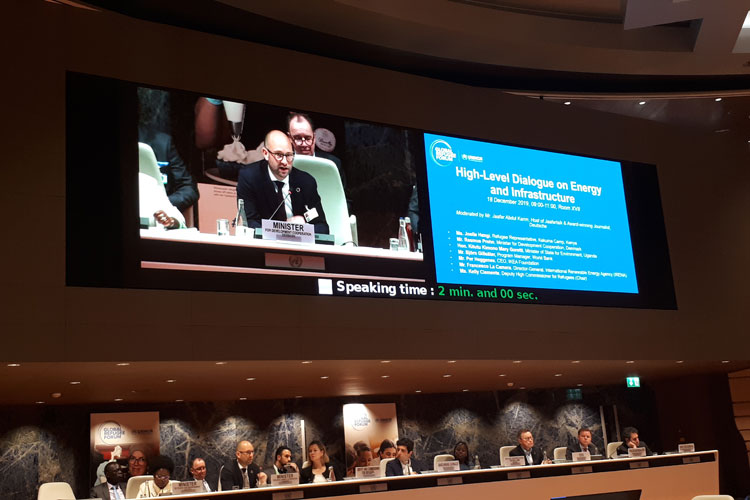
In mid-December, nearly 3,000 participants from civil society and the private sector gathered in Switzerland for one of the most important events organized by the United Nations High Commissioner for Refugees. The objective, the implementation of the Global Compact on Refugees signed a year ago in New York to improve the hosting and integration of refugees, gave rise to much discussion. Energy and infrastructure in refugee camps were regularly addressed.
"France's action also involves humanitarian assistance. (...) We have to defend the UNHCR's mandate and interests for the benefit of refugees," said France's Permanent Mission of France to the United Nations Office and other international organizations in Switzerland, headed by Ambassador François Rivasseau. Accompanying the French delegation from the Ministry of Europe and Foreign Affairs was the Veolia Foundation, which after several interventions in Mossoul, Bardarash and Myanmar.is very committed to issues of access to drinking water and sanitation in the refugee camps.
The discussions also made it possible to gauge the willingness of NGOs to take greater account of environmental impact issues in their humanitarian responses in the field. François Rivasseau's team cited "the importance of greening humanitarian responses in the context of forced population displacements". Research and innovation programs are also in the process of devising new solutions, particularly in the area of sanitation, to limit the environmental footprint of interventions.
The summary of the Forum by the co-organizers is now available.

